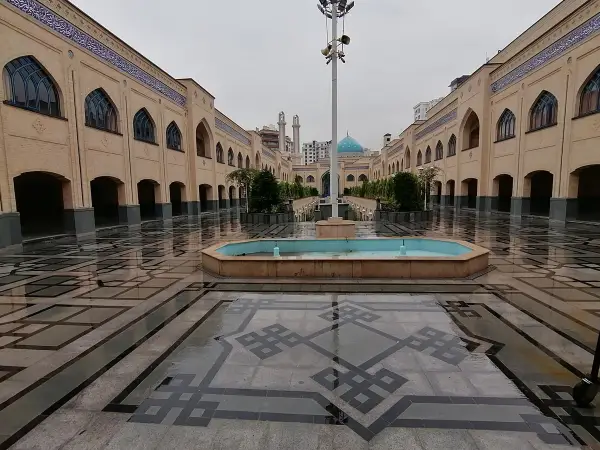Referring to large budget increases next year for Shiite seminaries in Iran, a prominent cleric has criticized dependence of religious centers on state money.
"Seminaries must use the money coming from people who pay willingly. Seminaries must be independent [from the government]," Ayatollah Mostafa Mohaghegh-Damad, a professor of Islamic law at Shahid Beheshti University of Tehran, said in a speech on a book dedicated to the Centenary of the Qom Seminary. "Today one of the problems of the seminary is its dependence on the government."
The Qom Seminary, established by Sheikh Abdul-Karim Haeri-Yazdi in 1922, is the largest Shiite seminary (hawza) in Iran with over 75,000 students. Seminaries were self-funded before the Islamic Revolution but like many other religious institutions, they now receive huge sums annually from the government.
In his speech, Mohaghegh-Damad, a moderate religious figure and a member of Iran's Science Academy, cited examples of prominent Shiite religious leaders who have emphasized the importance of separating religion from politics.
The budget allocated to religious institutions in the first budget bill presented to Parliament by President Ebrahim Raisi recently is noticeably higher in comparison with the previous year's budget – at least on those instances where clear figures have been noted.
For instance, the budget proposed for the Seminaries Services Center has doubled. The Seminaries Services Center is to receive 2.8 trillion rials which is higher than the 2,157 trillion rials allocated to the Department of Environment and many other government bodies including the Crisis Management Headquarters. The Center also receives funding from the Supreme Leader's office.
Supreme Leader Ali Khamenei ordered the Seminaries Services Center to be established in 1991 to provide housing assistance, health insurance, and similar services to seminary students, who are the future clerics and whose loyalty is important for the regime.
Critics say that in some cases the budgets proposed for government bodies and state entities is difficult to calculate from what is discernible in the budget bill, which does not provide sufficient details.
The government says its budget bill is based on restrictive monetary policies.
Based on the details provided in the bill, the budget of the Islamic Propaganda Organization itself has increased by 43% in comparison with the previous year and reached 11.7 trillion rials. Many other large and small institutions have also been allocated huge increases of up to 124%.
The budget allocated to Al-Mustafa International University of Qom, the Islamic Propaganda Bureau of the Qom Seminary, and the Artistic School of the Islamic Propaganda Organization have not been announced this year.
The Al-Mustafa International University, a state-funded university-style Shiite seminary with branches in many countries, received a budget nearly 5 trillion rials last year, or around $100 million based on the official exchange rate that was applicable at the time. This is higher than the budget of any university in Iran.
The Al-Mustafa University pays for hundreds of foreign students from China to Africa and Latin America who come to study and then return to spread Iranian Shiite teachings in their countries.
